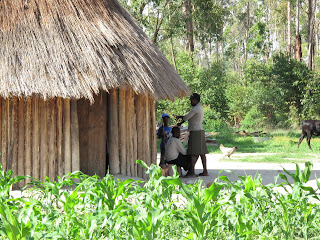When you educate a girl in Africa, everything changes...
She’ll be three times less likely to get HIV/AIDS, earn 25 percent more income and have a smaller, healthier family.
Dear Blog Reader,
This September, like pupils in the UK, secondary school girls in Africa are looking forward to going back to school. But unable to afford even $10 of school materials, many will have no choice but to drop out of school. At Camfed, we work to solve this problem by providing girls from poor families with secondary school bursaries, which include books, stationary, uniforms and more.
Cynthia, from the Chikomba district in Zimbabwe, is one such pupil we are working with. Her mother couldn’t afford to pay her school-going costs. Instead of starting secondary school with her peers, Cynthia stayed home. “I was devastated,” she says. “I feared my education was finished, and my dreams were dead.”
But with the generosity of Camfed’s donors, Cynthia’s future changed. “One day, the headmaster told me that Camfed offered bursaries for girls who were struggling financially, and that he had recommended me. He said all of my school costs would be covered until I finished secondary school — fees, uniforms, books, all of it. You can’t imagine the joy and relief I felt! It was incredible.”
In Malawi, Zambia, Zimbabwe, Tanzania and Ghana, Camfed is supporting thousands of girls like Cynthia. Will you help one or more girls go to school? Visit www.camfed.org/backtoschool to help. Your action will change her life.
Thank you so much,
Ann Cotton
Executive Director
















